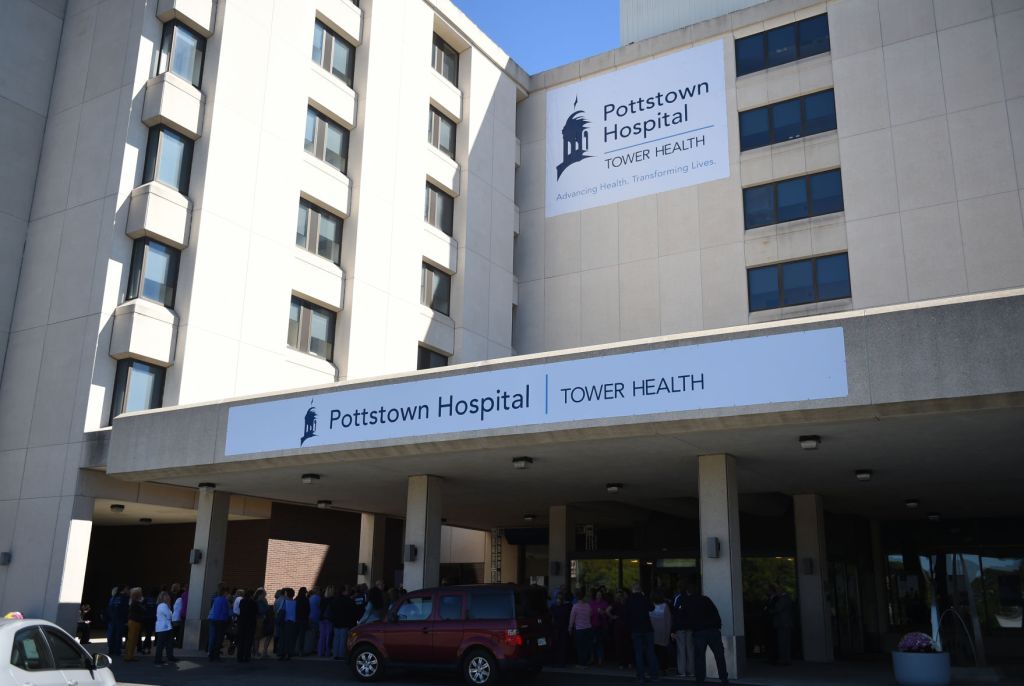Bad behavior from nonprofit hospital systems has been making headlines, leading many to ask whether their tax-exempt status deserves more scrutiny. In Pennsylvania, school districts are pushing back against one nonprofit health system, arguing that it acts more like a for-profit. The school districts recently received a victory in court when these hospitals’ tax exempt status was revoked. Could other hospitals be next?
Tower Health falls
Recently the Pennsylvania appellate court denied property tax exemptions to four hospitals in the Tower Health system—Pottstown Hospital, Jennersville Hospital, Brandywine Hospital, and Phoenixville hospital. The Tower Health hospitals may petition for state supreme court review, if they want to protest the decision.
One of these hospitals has already been sold to another system, and another one has closed. But there is real money on the line for the towns in which Tower Health hospitals are still operating. Pottstown Hospital’s removal from the tax rolls cost the Pottstown School District about $924,000 a year in property tax revenue, while the Phoenixville school district superintendent said the schools would gain nearly $1 million more per year if the local hospital paid property taxes.
We’ve previously written about the low community benefit spending and high fair share deficits for Tower Health hospitals. Each of the four hospitals involved in the court cases received 1 star on each community benefit metric on the Lown Index in 2022. None of these hospitals spent even 1% of expenses on charity care and none exceeded the state average for Medicaid revenue as a share of patient revenue, according to their CMS hospital cost reports.
However, the judges’ decisions were mostly based on the excessive CEO pay and unnecessary administrative fees that some of the hospitals were forced to pay to Tower Health.
“We agree with the trial court’s characterization of the Tower Health executive salaries at issue as ‘eye popping.’”
Judge Christine Fizzano Cannon, Pottstown School District v Pottstown Hospital
In Pennsylvania, the state constitution has specific requirements for “purely public charities” to be considered tax-exempt, and one of these requirements is that the institution operates “entirely free from private profit motive.” The court found that Tower Health’s demand for management fees from its hospitals (up to $23 million in one year at Pottstown hospital), as well as their use of interest on bonds to acquire other properties, demonstrated a profit motive.
They also found that the executive compensation at Tower Health was both outrageously high and substantially tied to financial performance, which showed a profit motive as well. Tower Health’s five highest-paid executives made more than $1 million and the president made more than $2 million in 2019, according to their tax filings. The court noted that 40% of executives’ bonus incentives were based on financial performance goals.
What does this mean for other hospitals?
This case was closely-watched in Pennsylvania because it offers more clarity on the expectations of nonprofit hospitals in the state. As Judge Jeffrey R. Sommer of the Chester County Court wrote in the previous case, the existing laws “do not reflect the vast change in the American healthcare landscape from community-based charity-oriented hospitals to massive conglomerations of healthcare networks, doctor providers, surgical suites, and insurance plans.”
This could be a wake-up call for nonprofit hospitals in PA to take note of their CEO compensation and charity care policies. While Tower Health executives were paid excessively, they are far from the only nonprofit hospital executives in the state to get million-dollar salaries. According to Lown Hospitals Index data, at least 40 nonprofit hospital CEOs in the state made at least $1 million in 2019, and ten made $2 million or more. Fourteen nonprofit PA hospitals received a “D” grade on the Lown Hospitals Index pay equity metric last year.
Part of the requirement for PA hospitals to qualify for tax exemption is that they “donate or render gratuitously a substantial portion of services.” In the Brandywine Hospital case, the court allowed that shortfalls from Medicare and Medicaid patients could be considered charity, but did not count it in this case because there was no evidence that Tower Health was losing money on publicly-insured patients. That sets a higher bar for other PA hospitals to prove that their Medicare and Medicaid “shortfalls” are indeed valid.
Other states may not have the same path to legal action against nonprofit hospitals as Pennsylvania, but this issue will continue to receive nationwide scrutiny, as consolidation of nonprofit hospital systems grows.
